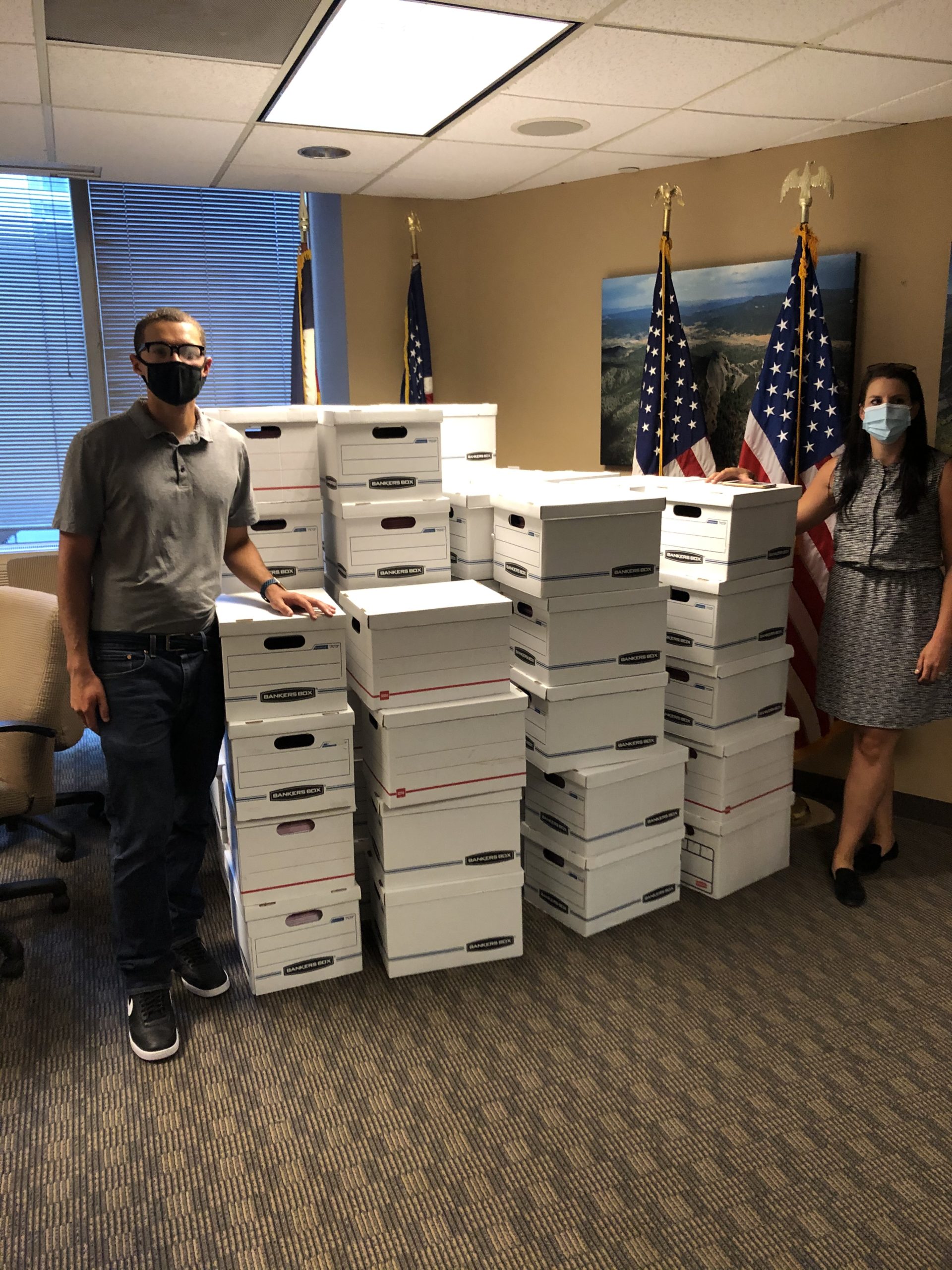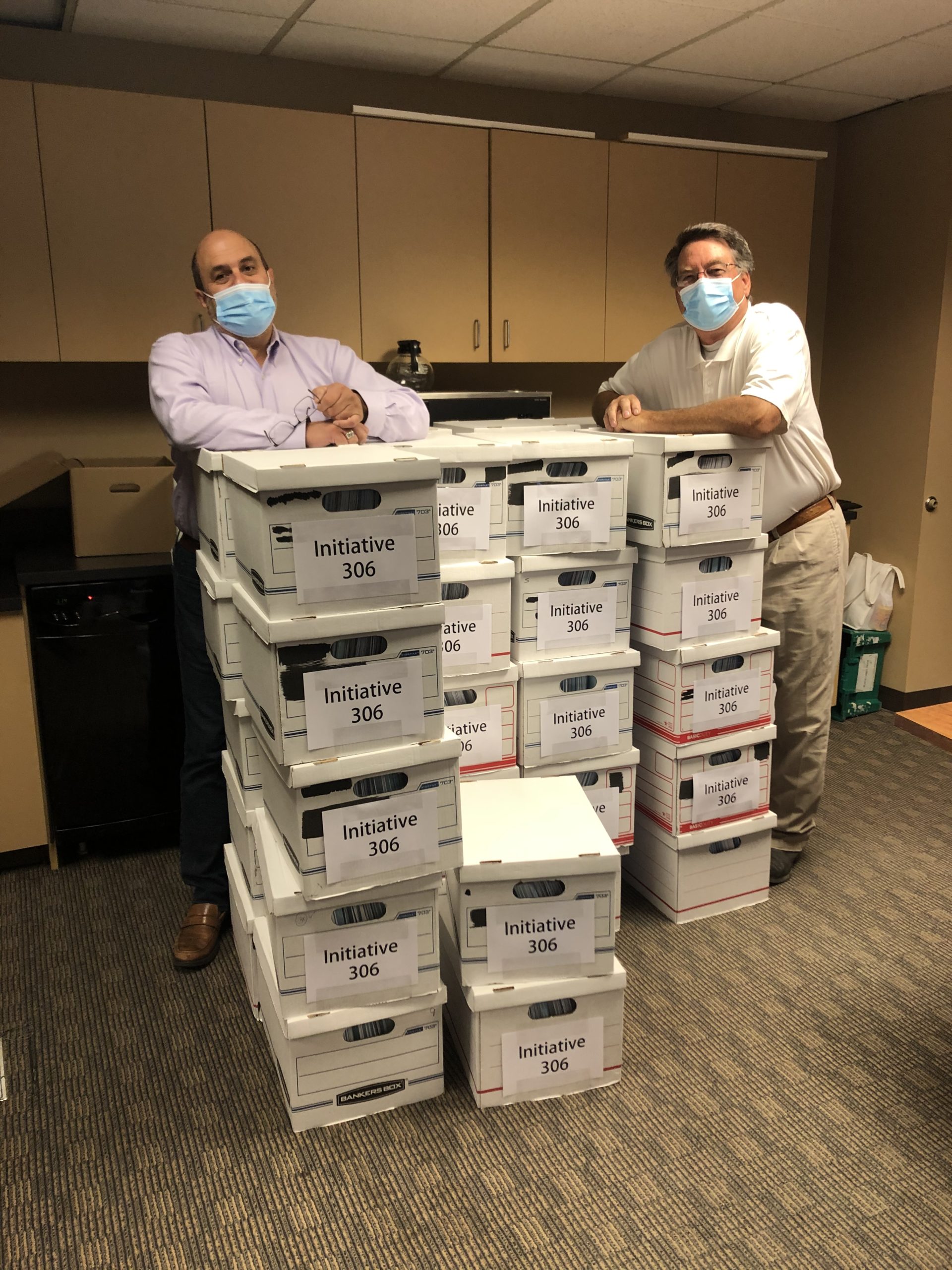DENVER — Two ballot initiatives are one step closer to making their way to Colorado voters this November. Signatures for Vote on Fees (Initiative 295) and Real Fair Tax (Initiative 306) were both turned into the Secretary of State’s office today with well more than needed to make the ballot, supporters say.
Vote on Fees, if passed by voters, will require that before any new state enterprise fund — whether it is qualified under the state Constitution or it is being created by the state legislature — with a projected revenue from fees and/or surcharges exceeding $100 million total in its first five years must be approved by a statewide election.

Real Fair Tax, if passed by voters, would lower the state’s flat income tax rate from 4.63 percent to 4.55 percent. It would take effect with the 2020 tax year.
Both initiatives had until Aug. 3 to gather 124,632 signatures from registered voters to make the ballot in November. Vote on fees turned in roughly 195,000 signatures and Real Fair Tax turned in roughly 197,000 signatures.
“For too long the legislature has been going around the Taxpayer’s Bill of Rights (TABOR),” said the executive director of Colorado Rising State Action, Michael Fields, one of the proponents of Vote on Fees. “It is time that voters get to weigh in on big new fees.”
TABOR is an amendment to the state Constitution requiring, among other things, that new or increased taxes be approved by voters. Fields previously told Complete Colorado that getting to vote on new fees is more important than ever now as the state made more than $3 billion in budget cuts for the next fiscal year and will be looking for new sources of revenue.
Senate Bill 20-215 was a “a perfect example of them trying to go around TABOR to raise revenue by calling them fees,” Fields said previously. “Clearly, this is the move they are going to make, raising taxes by calling them fees.”
SB-215, the Health Insurance Affordability Enterprise fund, establish a new pot of money known as an enterprise fund by assessing a new, ongoing “fee” on health insurance companies and a “special assessment” on hospitals for two years. The money would be used for a variety of reasons, including funding of the state’s reinsurance program, which was established in the 2019 legislative session. It is projected to raise more than $300 million in its first three years.

Republican state Sen. Jerry Sonnenberg, who represents much of rural eastern Colorado, and Jon Caldara, president of the free-market think tank Independence Institute* are the proponents behind the Real Fair Tax measure.
Real Fair Tax came about in response to another initiative dubbed “The Fair Tax,” for which signatures have not yet been turned in, that would repeal Colorado’s flat income tax rate and replace it with a progressive rate that would increase taxes on Coloradans as they earned more. Both Caldara and Sonnenberg expect Governor Polis to support their initiative.
“He has advocated for lower income tax,” Sonnenberg told Complete Colorado. “He talked to me, even two years ago about lowering the income tax. Now is the right time to do that, simply because people need to keep more of their own money in their pockets.”
“I’m just Jared Polis’ faithful foot soldier,” said Caldara, after wheeling boxes of petitions into the Secretary of State’s office. “He campaigned that he wanted a flat rate reduction in taxes. We’re doing just that for him.”
The Secretary of State now has 30 days to certify that enough valid signatures were gathered for the measures to appear on the Colorado’s November ballot.
Editor’s Note: Complete Colorado is a project of the Independence Institute.


